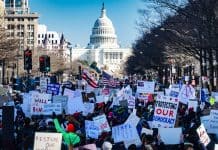 Destinations International offers meeting planners and destination organizers toolkits to help mitigate travel bans and boycotts.
Destinations International offers meeting planners and destination organizers toolkits to help mitigate travel bans and boycotts.
Research led by Destinations International beginning in 2017 to measure the effectiveness of travel bans and boycotts toward all travelers shows that financial effects of travel boycotts and bans vary by destination and length, but add up to the billions. US states that have been targeted by a ban or boycott saw a negative impact of 11 percent.
According to Destinations International, the “weaponization” of travel through meeting cancellations as well as by banning or boycotting destinations, can negatively impact the local economy and hurt innocent bystanders such as travel industry employees in the process.
In response, last month Destinations International released two toolkits for entities facing travel boycotts and bans. One is geared toward meeting planners, “The Weaponization of Travel Toolkit: Dealing with a Travel Ban or Boycott Around Your Event,” which is a joint project of Destinations International, US Travel Association, and Meetings Mean Business.
The other, geared toward destination organization planners, is the “Destination Organization Toolkit,” and is only available to members of Destinations International and the U.S. Travel Association.
“Destinations International not only opposes travel boycotts and bans, we want to defeat them,” said Don Welsh, president and CEO of Destinations International, in a release. “We are the only entity in the travel and tourism industry who has done this type of research. For this round of research and to build the toolkits, we were thrilled to partner with industry leaders such as MPI, PCMA, IAVM and Meetings Mean Business.”
According to the research, seven out of 10 meeting and event planners are familiar with travel bans and destination boycotts but of that 70 percent, only five percent feel “very prepared” to address them.
The meeting planner toolkit provides messaging, best practices, talking points, a sample tweet sheet, sample print ads and other materials and alternatives for event organizers who “have been caught in the crosshairs” of travel bans and boycotts. Aside from planning and key messaging tips, the toolkit also offers help with crisis response including the best way to respond to a travel ban or boycott quickly and effectively, as well as strategies regarding media and social media coverage of the issue and safety implications for the event.
According to the toolkit, 80 percent of event planners believe a better or just as acceptable alternative to a travel ban or boycott is to work with local stakeholders to ensure discriminatory policies will not be enforced. Forty-seven percent said adding a session to their conference program that focuses on advocacy was preferable or equally effective to a boycott.
Meanwhile, a US Travel study found that 77 percent of meeting planners said boycotts make no difference in their decisions of where to hold events, but 16 percent said they would choose to go somewhere else.
Recent bans include state officials in Colorado and Maryland who banned government employees they oversee from traveling to Alabama for work purposes. The move is in response to Alabama recently enacting a law that effectively bans abortions in the state.
The “Religious Freedom Restoration Act” Indiana enacted in 2015, which critics said would allow business owners to discriminate against the LGBTQ community, was only in place for a week before increasing pressure moved then-Gov. Mike Pence to sign a nondiscrimination law to mitigate it. In response, Connecticut, New York, Washington and many cities lifted their travel bans. However, the controversy over the law cost Indianapolis 12 conventions, some that were to be held in 2021, which may have produced an estimated $60 million in revenue.








